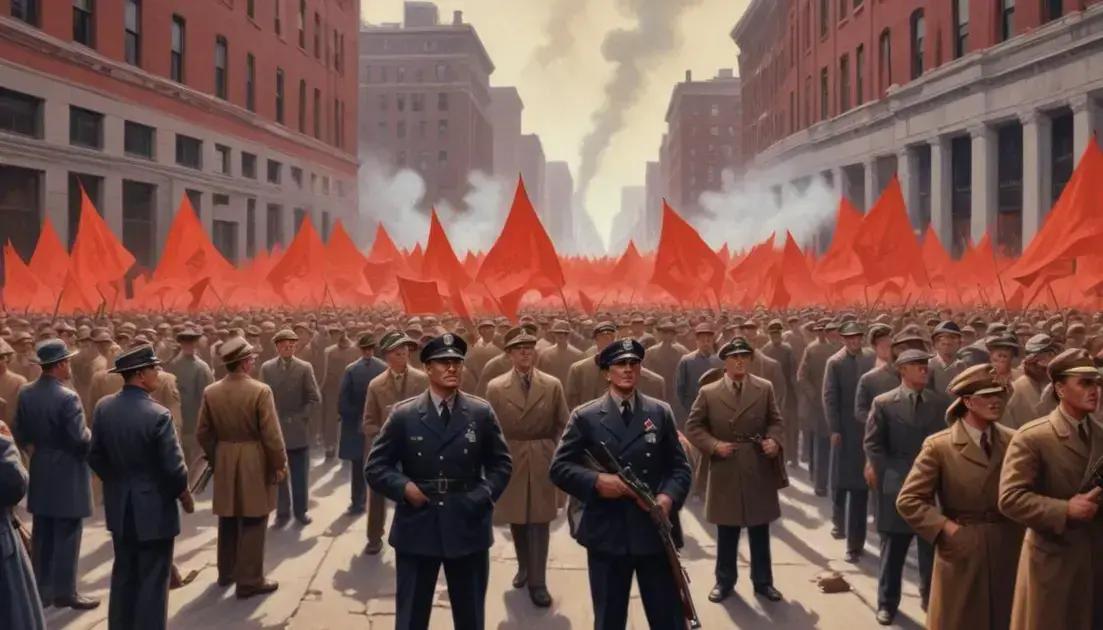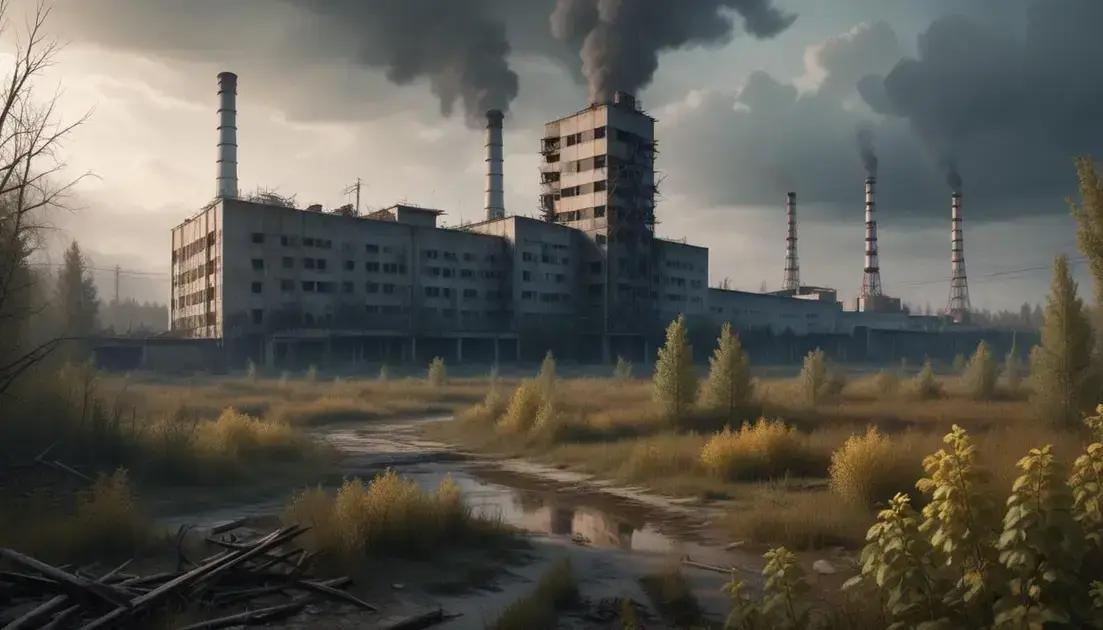
The Yugoslav Wars: the birth of the modern NATO
The Yugoslav Wars had a profound impact on European politics, highlighting the dangers of ethnic nationalism and the importance of open dialogue. Key lessons learned include the necessity for strong democratic institutions, the role of international cooperation in conflict resolution, and the critical need to recognize human rights violations for healing. By understanding these lessons, nations can work towards fostering stability and preventing future conflicts.
Ever thought about how the Yugoslav Wars reshaped modern Europe? These conflicts were pivotal moments that transformed not just borders, but NATO’s very existence and mission.
Understanding the Yugoslav Wars
Understanding the Yugoslav Wars means looking at a complex time in history. These wars lasted from the early 1990s to the late 1990s. They were a result of the breakup of Yugoslavia, which had been a mixed nation of several ethnic groups. Each group had its own history and culture. When the country split, tensions boiled over. People who once lived together began fighting over land and power.
Key Ethnic Groups
Several ethnic groups played important roles in the wars. The main ones included Serbs, Croats, and Bosniaks. Each group had different goals and dreams for the new countries. However, misunderstandings and long-held grudges led to violence.
The Role of Nationalism
Nationalism surged during this time. Many people wanted their own nation, separate from others. This strong feeling of pride was both a cause and a result of the wars. It pushed people to fight for their identity but also made it harder to find peace.
International Involvement
Countries around the world watched closely. The United Nations and NATO became involved as violence grew. They took steps to stop the fighting and create peace. But this was not easy. Different sides had different needs, making negotiations tough.
The Yugoslav Wars were not just battles on the ground. They affected millions of lives. Many lost their homes, families, and communities. Today, we still feel the impacts of these conflicts. It’s crucial to learn about this period to understand the push for stability in the Balkans now.
The Formation of NATO and Its Significance
The formation of NATO happened in 1949. It was a response to the fear of Soviet expansion. The North Atlantic Treaty Organization was created to ensure collective defense. This means that if one member is attacked, all members will help. This idea was new and powerful.
Why NATO Was Created
During the Cold War, there were many worries about safety. Countries wanted to feel secure against potential threats. By banding together, they strengthened their defense capabilities. This unity was aimed at preventing the spread of communism.
Members of NATO
NATO started with 12 founding members. These included the United States, United Kingdom, and France. Today, it has grown to include many countries from Europe and North America. Each member contributes to shared defense efforts.
Significance of NATO Today
NATO remains important for global security. It helps maintain peace and stability in Europe. When conflicts arise, NATO steps in to support troubled nations. This presence deters potential aggressors, showing that unity matters.
Moreover, NATO promotes democratic values. It encourages countries to cooperate and work together. This partnership helps prevent wars and builds strong alliances.
Today’s world is different from the past. But the principles of NATO still hold firm. With changing threats, NATO adapts to meet new challenges. Its role continues to evolve, ensuring safety for its members.
Impact on European Politics
The impact on European politics after the Yugoslav Wars was significant. These conflicts changed how countries in Europe viewed their security. Nations realized that stability was essential for progress. Many countries started to rethink their alliances and relationships.
New National Boundaries
As Yugoslavia broke apart, new countries emerged. This shift in borders led to various political changes. Each new country had to establish its government and policies. These changes affected trade, diplomacy, and cooperation across the region.
Increased Focus on Human Rights
The wars highlighted the need for human rights protections. Many people suffered due to ethnic violence and war crimes. This revelation changed how countries approached human rights legislation. Leaders began to prioritize these issues more seriously.
European Union’s Response
The European Union played a vital role during this time. It aimed to promote peace and stability in the Balkans. The EU increased its influence in the region, offering support for rebuilding efforts. Joining the EU became a goal for many of the new countries.
Geopolitical Tensions
While the wars ended, tensions persisted. Different ethnic groups continued to feel mistrust. This situation often influenced political decisions in Europe. Leaders had to balance internal issues while responding to external threats.
Today, the legacy of the Yugoslav Wars continues to shape European politics. Countries strive for cooperation while addressing past conflicts. Understanding these impacts helps us see the current political landscape better.
Lessons Learned from the Conflicts
The lessons learned from the conflicts of the Yugoslav Wars are many. These wars showed the dangers of ethnic nationalism. When people prioritize their identity over unity, conflict can arise. This was a key lesson for countries worldwide.
Importance of Dialogue
One major takeaway is the value of open communication. Dialogue among different groups helps build trust. It can prevent misunderstandings that lead to violence. Leaders must encourage conversations to foster peace.
Nurturing Democracy
The conflicts highlighted the need for strong democratic institutions. In post-war societies, democracy can stabilize the nation. Ensuring fair elections and protecting rights are essential parts of this process.
International Cooperation
The role of international organizations became clear during the wars. Groups like the UN and NATO played vital roles in providing support. Future conflicts can benefit from early intervention and peaceful resolutions through cooperation.
Recognizing Human Rights Violations
The Yugoslav Wars also brought attention to human rights abuses. Understanding and acknowledging these violations is crucial for healing. Justice and reconciliation efforts must be part of rebuilding communities after conflict.
These lessons serve as reminders for current global issues. By learning from history, we can work towards preventing future conflicts and fostering lasting peace.
Conclusion
In conclusion, the Yugoslav Wars taught us many important lessons about conflict and peace. We learned that open communication is key to preventing misunderstandings. It’s crucial for nations to support strong democratic institutions. This helps build trust and unity among diverse groups.
Additionally, international cooperation is essential. Organizations like the UN and NATO can intervene early to support peace. Recognizing human rights violations is also vital for healing. Acknowledging these issues allows communities to rebuild and move forward.
By understanding the past, we can create a brighter future. The lessons from these conflicts remind us to value dialogue and cooperation. Together, we can work towards a peaceful world for everyone.


